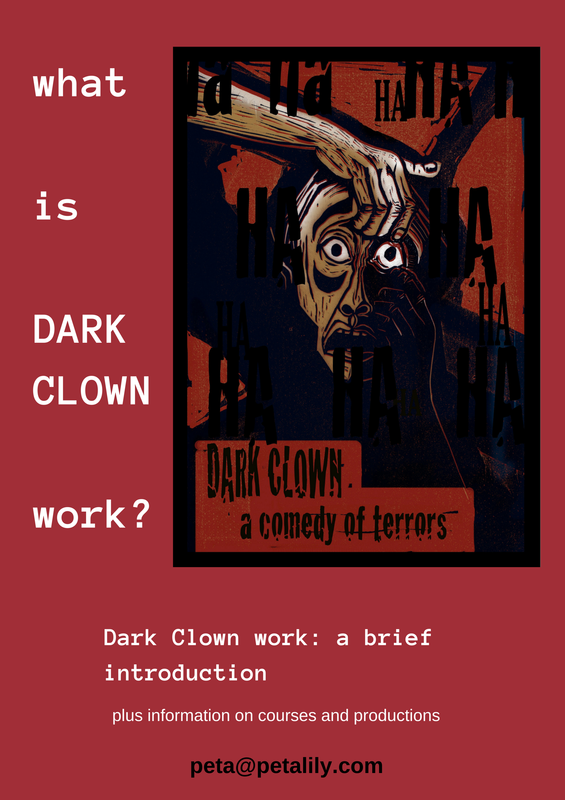Sometimes people react to the Dark Clown work, saying: 'how can this be funny?!' Actually they usually say: 'but this isn't funny' or: 'I don't see how this can be funny!' or: I don't know where this is going! - and they usually say this at a point in the work when I am getting the students to experience the high stakes necessary for the Dark Clown state to be spontaneously released (or for the performer to be able to have pretended sufficiently to release naturally in to extreme yet believable (yet rhythmically, strategically and musically presented) expressions of pain, horror, guilt etc) - phew, still with me?
But I am a huge believer in the power of Comedy to at least have the potential to change minds or to shake up people's thinking. If you are interested in getting people along to see your show, it's of advantage to have a few laughs. It's useful in more than one way to deal with serious topics in a comic way.
At around 2.37 in the TED talk Chris Bliss says:
'...when your opening line of communication is, "Hey, listen up, because I'm about to drop some serious knowledge on you," it's amazing how quickly you'll discover both ice and the firing squad.
Finally, after about 10 years of alienating friends and strangers alike, I finally got it, a new personal truth all my own, that if I was going to ever communicate well with other people the ideas that I was gaining, I'd better find a different way of going about it. And that's when I discovered comedy.
Now comedy travels along a distinct wavelength from other forms of language. If I had to place it on an arbitrary spectrum, I'd say it falls somewhere between poetry and lies. And I'm not talking about all comedy here, because, clearly, there's plenty of humor that colors safely within the lines of what we already think and feel. What I want to talk about is the unique ability that the best comedy and satire has at circumventing our ingrained perspectives -- comedy as the philosopher's stone. It takes the base metal of our conventional wisdom and transforms it through ridicule into a different way of seeing and ultimately being in the world.'
Then later on, at 7.50
'A great piece of comedy is a verbal magic trick, where you think it's going over here and then all of a sudden you're transported over here. And there's this mental delight that's followed by the physical response of laughter, which, not coincidentally, releases endorphins in the brain. And just like that, you've been seduced into a different way of looking at something because the endorphins have brought down your defenses. This is the exact opposite of the way that anger and fear and panic, all of the flight-or-fight responses, operate. Flight-or-fight releases adrenalin, which throws our walls up sky-high. And the comedy comes along, dealing with a lot of the same areas where our defenses are the strongest -- race, religion, politics, sexuality -- only by approaching them through humor instead of adrenalin, we get endorphins and the alchemy of laughter turns our walls into windows, revealing a fresh and unexpected point of view.'
Full talk transcript here, thank you TED and thank you Chris Bliss!
 RSS Feed
RSS Feed
